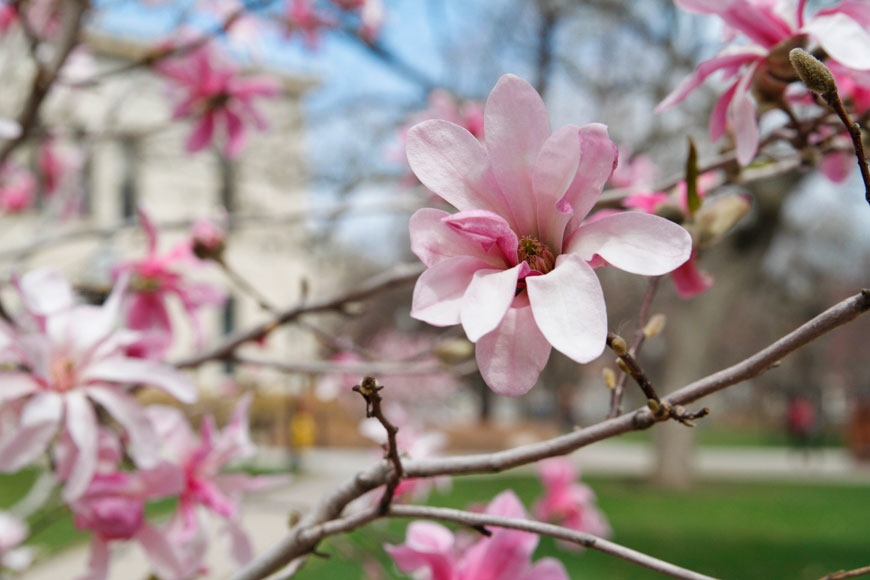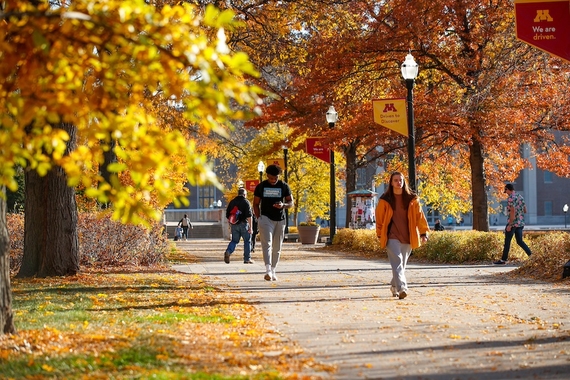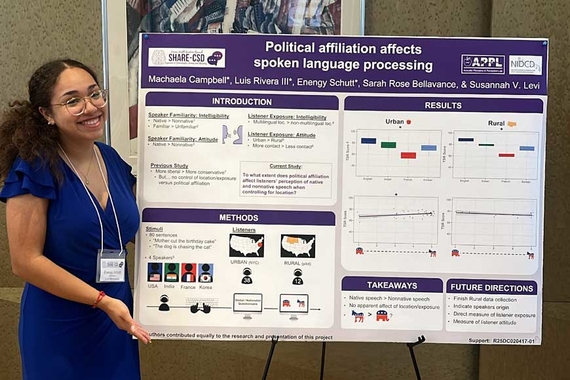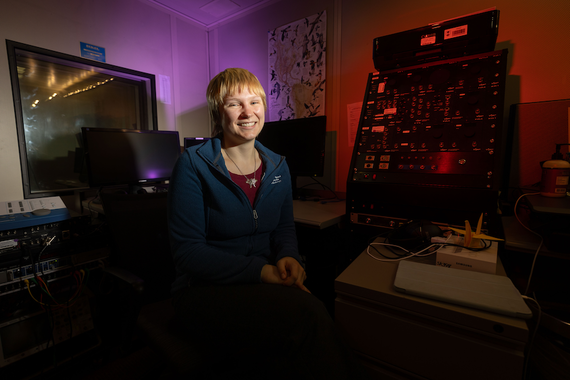Summer 2020 Newsletter
Dear colleagues, students, alums, and friends:
I hope that you enjoy reading our summer 2020 newsletter. This newsletter marks the first time that our department administrator, Rachel Ayers, served as the primary point person to coordinate with Backpack, a student-run brand communications agency, in preparing this newsletter. Rachel has been with SLHS for four years, and she feels very much a part of the fabric of the department. I am grateful that she took this task on. I am also very grateful for the folks who shared their stories in this newsletter. As you can see, our department continues to blaze new trails in our field. I can’t imagine a better group of people—students, faculty, staff, and community partners—to work with.
Of course, this newsletter also arrives in your inbox in the midst of the COVID-19 pandemic. In many ways, our lives have been turned upside down. All our teaching and a great deal of our clinical services and research have moved online. Over the last two months, it seems like I have received emails about COVID-19 responses from every place I ever used my credit card, and I can’t be the only one who has read so many inspirational emails about “these times we are living in” that they have ceased to inspire.
Still, I can’t help but share my thoughts, though I will try to be brief. When the pandemic began, our entire species moved from communicating primarily face-to-face to communicating in what we can broadly call “reduced bandwidth” situations: over telephone and teleconference, over text and email. Suddenly, so many of the cues and habits that we had come to rely on to reinforce our messages were gone.
Many of us have found ways to cope very quickly. If you are reading this, it’s likely that you already know that people with untreated speech, language, and hearing problems are at a considerable disadvantage to the rest of society with communication in even the most optimal circumstances. In these “reduced bandwidth” situations, those people are even more at risk.
Even as we move toward a recovery from this pandemic, it is likely that much of this digital communication will become the new normal, virus or no virus. Now is the time to double down in our advocacy for the needs of people with communication disorders so that everyone can have a place at the table in the new normal that comes out of this. I thank you all for the great work that you are going to do to make that happen.
Just as the semester wound down, and after I had written the portions of this letter in the previous five paragraphs, George Floyd was murdered by members of the Minneapolis police. This murder brought to light the realities of racism and racial injustice to those who did not already face them every day.
The intervening weeks have seen calls for justice on a global scale. We are extremely grateful for the leadership that organizations like Black Lives Matter have provided. We are especially impressed by Minnesota Student Association President Jael Kerandi’s uncompromising leadership on campus. Mx. Kerandi’s efforts were instrumental in convincing University of Minnesota President Joan Gabel to greatly reduce the presence of the Minneapolis police on our campus. Doing so has made us all safer. However, we realize that we cannot rely solely on the labor of Black people, Indigenous people, and other people of color to guide us toward a more just future. We need to listen to the voices of those communities and follow their leads.
Now we face the necessary task of making true, lasting changes in our department. The fields of audiology and speech-language pathology are overwhelmingly white, and our department’s composition reflects that. They (and we) do not reflect American society. This will not stand. Our ultimate goal is developing both short- and long-term action plans to achieve justice and equity, and to make necessary changes in our department. We have some ideas for how to move forward in the short term.
As I write this letter, our department’s newly formed Justice, Equity, and Anti-Racism Committee is finalizing a statement that will be posted to our website. More importantly, we are developing structures to engage with the community—with community partners, alumni, and friends—to collect data and observations. To develop a meaningful long-term plan, white people in our department and our discipline (myself definitely included) need to cede the floor to the voices of Black people, Indigenous people, and other people of color in our discipline, and to learn from the centuries of accumulated wisdom in those communities. Equally importantly, we need new structures to keep us accountable to meeting those goals. We invite you to stand shoulder to shoulder with us.
Alums, please consider joining our new Facebook group for SLHS alumni. This new group has been formed as a way for alums to engage with our department, especially as it relates to these initiatives on justice, equity, and anti-racism.
We love hearing from you. Please don’t hesitate to write to me (munso005@umn.edu) and Rachel (rfayers@umn.edu) and update us on how you are doing and how you are putting your many talents to use.
Yours with Love and Solidarity,
Benjamin Munson
Professor and Chair
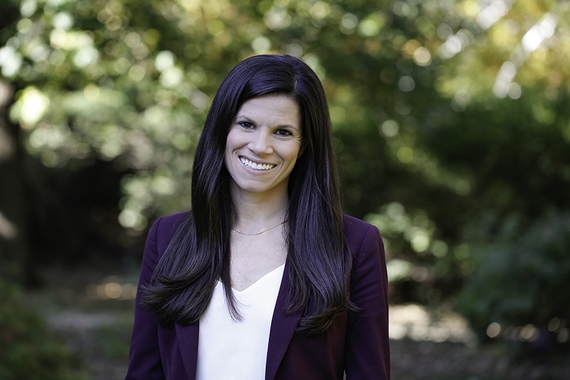
A professor, clinician, and researcher, Assistant Professor Katlyn McGrattan has developed new technology to identify difficulties swallowing in NICU newborns that can damage their health and speech development.
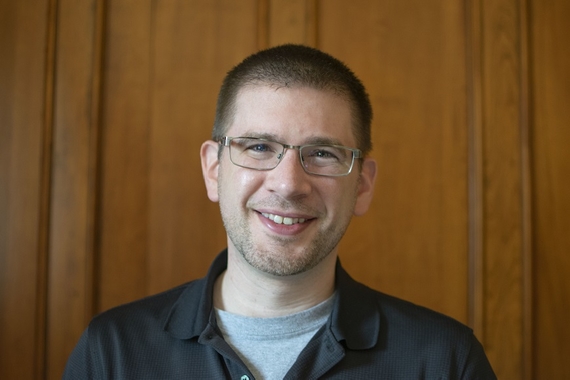
“Maybe the effort of listening is what you do in your head after [you hear something].” Assistant Professor Matt Winn researches pupil dilation and cochlear implants to unravel how hearing loss impacts both communication and quality of life.
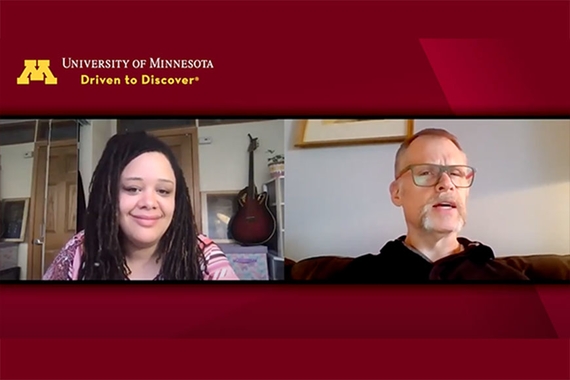
Professor Benjamin Munson has transformed his NIH grant to dedicate an entire arm to study audiovisual speech perception over Zoom. He and postdoctoral research associate Alayo Tripp answer some questions about how they are taking advantage of this time of social distancing to keep the study moving forward.
